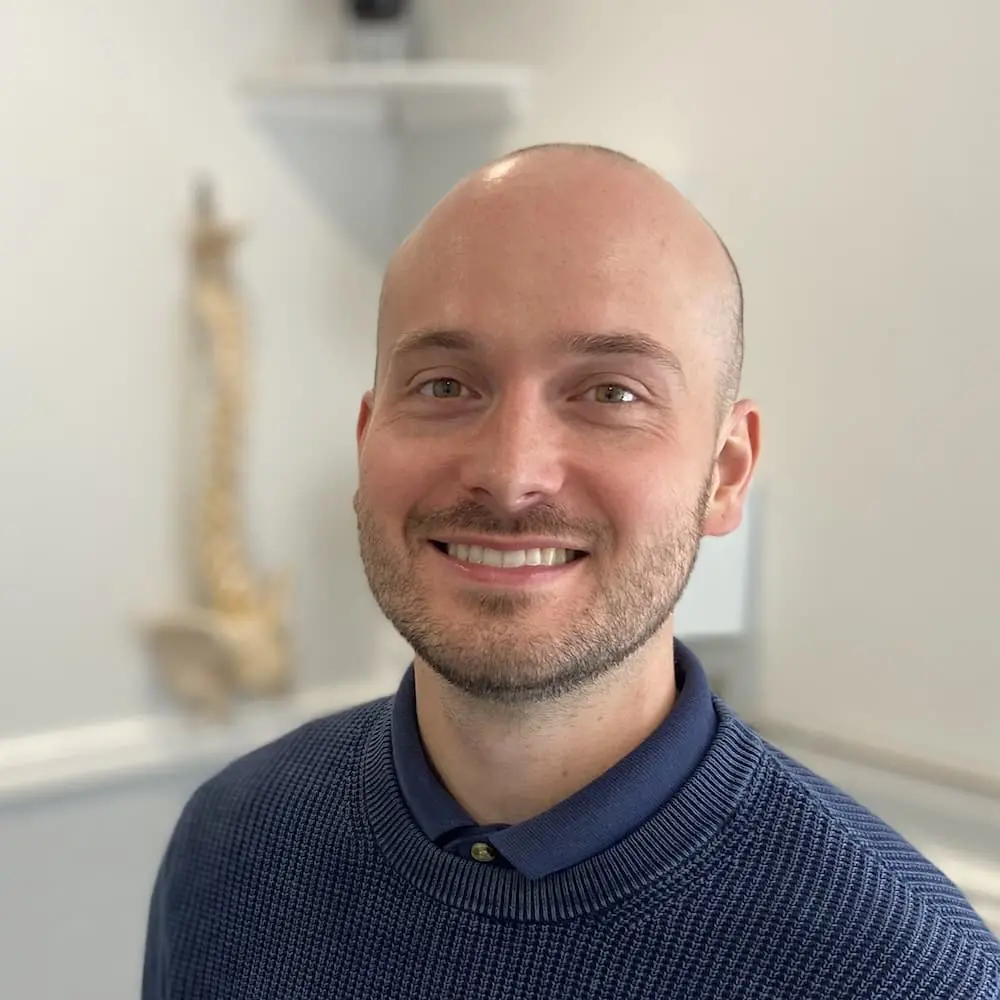Hip Osteoarthritis
Hip osteoarthritis
Hip osteoarthritis (OA) is a chronic degenerative disease affecting the hip joint, characterised by the breakdown of articular cartilage, changes in the underlying bone, and the formation of bone spurs (osteophytes).
What conditions are associated to hip OA?
Hip pain can be caused by a variety of conditions and factors, ranging from temporary, minor issues to chronic, severe disorders. Here’s an overview of common causes:
- Bursitis: Inflammation of the bursae, small fluid-filled sacs that cushion the hip joint.
- Tendinitis: Inflammation or irritation of the tendons around the hip.
- Fractures: A break in the hip bone, often due to trauma or osteoporosis.
- Muscle Strains: Overstretching or tearing of the muscles around the hip.
- Sciatica: Pressure or irritation of the sciatic nerve can cause pain radiating from the lower back to the hip.
- Hip Labral Tear: A tear in the ring of cartilage surrounding the hip socket.
- 7 Hip Dysplasia: A congenital condition where the hip socket doesn’t fully cover the ball of the upper thigh bone.
- Infections: In the bone, joint, or surrounding soft tissues.
- Avascular Necrosis: Death of bone tissue due to lack of blood supply.
- Rheumatoid Arthritis: An autoimmune condition that can affect the hip joint.
- Ligament Sprains: Damage to the ligaments in the hip joint.
- Cancers: Such as bone cancer or when cancer metastasizes to the hip.
- Referred Pain: Pain originating from other parts of the body, such as the lower back, may be felt in the hip.
- Pinched Nerves: Compression of nerves in the back can cause pain that radiates to the hip.
- Inflammatory Diseases: Like ankylosing spondylitis.
- Hernia: Such as inguinal or femoral hernias.
The specific cause of hip pain can often be identified through a combination of physical examination, patient history, and diagnostic tests such as X-rays, MRI, or ultrasound. Treatment varies depending on the underlying cause and may include rest, physiotherapy, medications, injections, or surgery.
What are the symptoms of hip OA?
Hip osteoarthritis (OA) symptoms include pain, stiffness, limited range of motion, swelling, and a grating or creaking sensation in the hip joint, often worsening with activity and improving with rest.
What causes hip OA?
Hip pain can be caused by a variety of conditions and factors, ranging from temporary, minor issues to chronic, severe disorders. Here’s an overview of common causes:
- Osteoarthritis: Degeneration of the joint cartilage leading to pain, stiffness, and inflammation.
- Bursitis: Inflammation of the bursae, small fluid-filled sacs that cushion the hip joint.
- Tendinitis: Inflammation or irritation of the tendons around the hip.
- Fractures: A break in the hip bone, often due to trauma or osteoporosis.
- Muscle Strains: Overstretching or tearing of the muscles around the hip.
- Sciatica: Pressure or irritation of the sciatic nerve can cause pain radiating from the lower back to the hip.
- Hip Labral Tear: A tear in the ring of cartilage surrounding the hip socket.
- Hip Dysplasia: A congenital condition where the hip socket doesn’t fully cover the ball of the upper thigh bone.
- Infections: In the bone, joint, or surrounding soft tissues.
- Avascular Necrosis: Death of bone tissue due to lack of blood supply.
- Rheumatoid Arthritis: An autoimmune condition that can affect the hip joint.
- Ligament Sprains: Damage to the ligaments in the hip joint.
- Cancers: Such as bone cancer or when cancer metastasizes to the hip.
- Referred Pain: Pain originating from other parts of the body, such as the lower back, may be felt in the hip.
The specific cause of hip pain can often be identified through a combination of physical examination, patient history, and diagnostic tests such as X-rays, MRI, or ultrasound. Treatment varies depending on the underlying cause and may include rest, physiotherapy, medications, injections, or surgery.
What is the best treatment for hip OA?
Treatment varies depending on the underlying cause and may include relative rest, physiotherapy, medications, injections, or surgery
Who should I see to fix hip OA?
For hip osteoarthritis (OA), you should see a physiotherapist who can help to formulate and initial diagnosis and management plan. You may need referring to specialists such as an orthopaedic surgeon, rheumatologist, or others depending on the severity and specific needs of your condition.
Is exercise good for hip OA?
Yes, exercise is generally considered beneficial for hip osteoarthritis (OA). Engaging in regular, appropriate exercises can help improve joint flexibility, strengthen the muscles around the hip, reduce pain, enhance mobility, and support overall joint health. Specific exercises tailored to your condition, guided by a physiotherapist, are recommended to ensure safety and effectiveness.
Will I need surgery for hip OA?
Surgery for hip osteoarthritis (OA) is not always necessary and is generally considered a last resort when other conservative treatments have failed to relieve symptoms. Non-surgical treatments, such as physiotherapy, weight management, medication, and lifestyle modifications, are often effective in managing the symptoms of hip OA. However, if the pain and disability become severe, impairing daily activities and quality of life, surgery such as a hip replacement might be recommended. The decision for surgery should be made in collaboration with an orthopaedic surgeon, considering the individual’s specific condition, needs, and preferences.
Chews Health top tip for hip OA
Our Specialists
Posted onTrustindex verifies that the original source of the review is Google. Tennis elbow pain issue resolved in 3 physio - therapy sessions with Richard Saxton. Back to Badminton and Cricket as normal. Many thanksPosted onTrustindex verifies that the original source of the review is Google. I was referred to Chews Health for shockwave therapy for long term IT Band syndrome. Jon Shurr was excellent at talking me the through the process, setting my expectations and listening to my concerns. I just expected to receive the intervention with Jon but what I actually got was a patient-centred, holistic approach to my condition. Jon was excellent at setting physical challenges to test my knee pain and amending approaches when needed. Having completed my course of shock wave therapy I am feeling the improvements and continue to challenge my knees!! I am so pleased with the success of this therapy and am very grateful to Jon.Posted onTrustindex verifies that the original source of the review is Google. Outstanding care and a well-tailored set of stretches and exercises to address my problems and to keep me in shape. Thank you, Jack!Posted onTrustindex verifies that the original source of the review is Google. I have had a great experience here. I went for a knee injury and they’ve helped me so much build my strength back up. I would definitely recommend. The staff are lovely and really care about your improvements and your injury. Very thankful!Posted onTrustindex verifies that the original source of the review is Google. Highly recommended. My Physio (Jack initial assessment and follow up with Fio) completely understood the issue and worked with me to fix the issue. Thanks for you help.Posted onTrustindex verifies that the original source of the review is Google. I would highly recommend Chews Health. I have seen Jon for help with improving muscle strength in my arms and legs. I am in late 70's and presently seeing him every week because of hip pain. The exercises are helping me cope with an ongoing problem. Thank you. DotPosted onTrustindex verifies that the original source of the review is Google. Jack was incredibly helpful in advising on, and treating, my knee injury which was preventing me from training for the Manchester marathon. Jack was able to explain the cause in a really clear way and created a bespoke training and physio plan which enabled me to run the marathon without the level of pain I had been experiencing. Jack has also significantly improved my running form through his advice and the use of the high tech equipment and analysis software available in each session. Thanks to Jack for enabling me to complete the marathon (and enjoy it!) and for continuing to support on my running journey!Posted onTrustindex verifies that the original source of the review is Google. Great service. Jack was honest and straightforward explaining the rationale behind exercises/decisions. Pragmatic approach focused on getting me safely back to sportPosted onTrustindex verifies that the original source of the review is Google. Have waited a few months post-treatment to write a review - just to be certain! Quite simply, I can't recommend these guys highly enough. I went to them with two badly damaged knees (miniscus tears). Having had three arthroscopes over the years, I was completely resigned to needing surgical intervention again. The Chews team had different ideas. After showing me the latest research findings, they assured me my knees could be rehabilitated without a scalpel. I had just a handful of sessions with them and am delighted to report that, six months on, my knees are great! I'm running 5k twice a week (don't laugh, I loathe running and am no spring chicken) without any pain and have taken up tennis. Everyone at Chews is passionate about their subject, knowledgeable, reassuring and friendly. I wouldn't go anywhere else.Posted onTrustindex verifies that the original source of the review is Google. Couldn’t recommend Chews health enough. Jack’s experience and expertise allowed me to identify my problems and gradually build the strength and ability to return to running pain free.Google rating score: 5.0 of 5, based on 116 reviews




